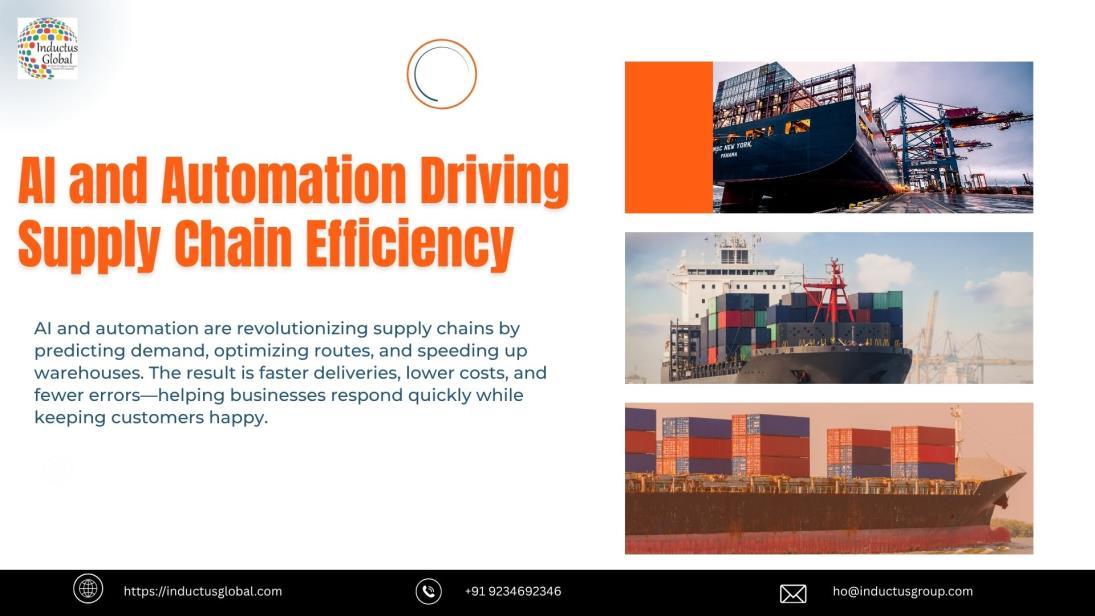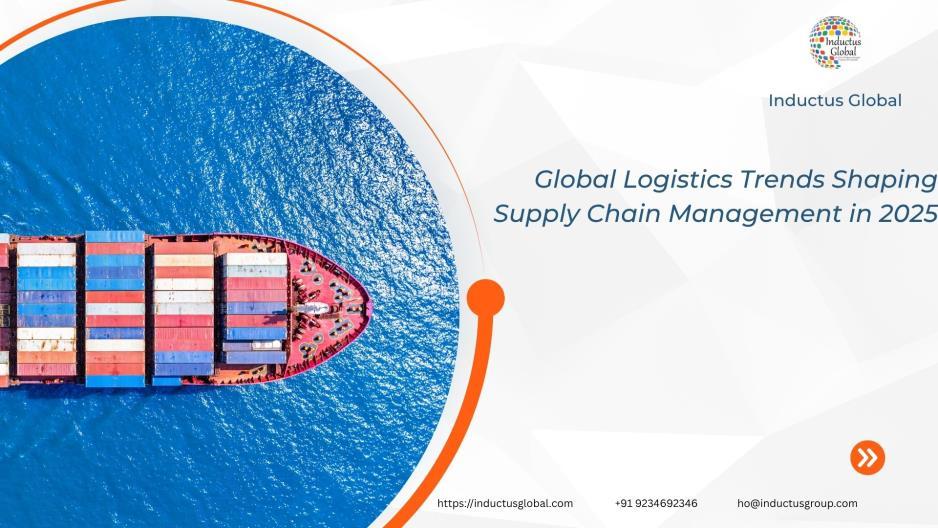The Future of Logistics and Supply Chain Management: Trends Shaping 2025
and Beyond
The logistics and supply chain management landscape is evolving at an unprecedented pace. As we move through 2025 and look ahead, businesses face both exciting opportunities and complex challenges. New technologies, changing consumer expectations, and global economic shifts are reshaping how products move from manufacturers to end customers. Understanding these emerging trends isn't just beneficial it's essential for survival in an increasingly competitive marketplace.
Artificial Intelligence Takes Center Stage
Artificial intelligence has moved from experimental technology to essential infrastructure in modern supply chains. AI-powered systems now predict demand with remarkable accuracy, analyzing patterns across seasons, regions, and market conditions. This predictive capability helps businesses avoid both stock outs and excess inventory, saving millions in carrying costs.
Beyond forecasting, AI optimizes delivery routes in real-time, adjusting for traffic, weather, and last-minute changes. Machine learning algorithms identify inefficiencies that human analysts might miss, continuously improving operations. The logistics companies embracing AI aren't just working faster they're working smarter, making decisions based on data rather than intuition.
Automation Revolutionizes Warehouse Operations
Walk into a modern warehouse and you'll see a different world than just five years ago. Automated guided vehicles navigate aisles independently, robotic arms pick and pack orders with precision, and conveyor systems move products seamlessly between stations. This warehouse automation doesn't eliminate jobs it transforms them, allowing workers to focus on complex problem-solving while machines handle repetitive tasks.
The benefits extend beyond speed. Automated warehouses operate 24/7, maintain consistent accuracy rates above 99%, and adapt quickly to demand fluctuations. As technology becomes more affordable, even mid-sized businesses can implement automation solutions that were once exclusive to industry giants.
Sustainability Becomes Non-Negotiable
Environmental responsibility has shifted from corporate social responsibility checkbox to core business strategy. Consumers increasingly choose brands based on their environmental practices, and regulations worldwide are tightening around emissions and waste. Forward-thinking logistics providers are responding with sustainable supply chain practices that reduce carbon footprints while maintaining efficiency.
Electric delivery vehicles are becoming commonplace in urban areas. Companies optimize packaging to minimize waste and transportation costs. Route planning now considers fuel efficiency alongside speed. Some organizations are even exploring alternative fuels and carbon offset programs. Sustainability in logistics isn't just good ethics it's good business, reducing costs while meeting stakeholder expectations.
Real-Time Visibility Transforms Customer Experience
Today's consumers expect Amazon-level transparency regardless of where they shop. Real-time tracking in supply chain and logistics management has become standard, with IoT sensors monitoring shipments from warehouse to doorstep. This visibility benefits everyone customers know exactly when orders arrive, while businesses can proactively address delays before they become complaints.
Advanced tracking systems monitor more than location. They track temperature for perishables, detect handling issues, and predict potential delays. This data enables proactive communication and problem-solving, turning potential service failures into opportunities to demonstrate reliability and care.
Digital Transformation Accelerates
The digital transformation in logistics and supply chain industry encompasses far more than upgrading software. It represents a fundamental reimagining of how supply chains operate. Cloud-based platforms enable seamless collaboration between suppliers, manufacturers, distributors, and retailers. Block chain technology creates transparent, tamper-proof records of transactions and movements.
Digital twins virtual replicas of physical supply chains allow companies to test strategies and identify vulnerabilities without real-world risk. This technology helps businesses prepare for disruptions, optimize networks, and make capital investments with confidence.
Resilience Replaces Efficiency as Primary Goal
The pandemic taught businesses a harsh lesson: ultra-lean supply chains optimized purely for cost can be dangerously fragile. The focus has shifted toward building resilient supply chains that can withstand disruptions. Companies are diversifying suppliers, increasing inventory buffers for critical items, and developing contingency plans for various scenarios.
This doesn't mean abandoning efficiency. Modern supply chain strategies balance cost optimization with flexibility, using technology and smart planning to maintain both resilience and competitiveness.
The Rise of Micro-Fulfillment Centers
Traditional large warehouses in suburban areas are being complemented by networks of microfulfillment centers in urban locations. These smaller facilities enable faster last-mile delivery, meeting consumer expectations for same-day or next-day service. The trend toward distributed inventory reduces shipping distances, cutting both costs and emissions while improving delivery speed.
Collaborative Ecosystems Replace Linear Chains
The term "supply chain" it is becoming outdated. Modern networks resemble ecosystems more than chains, with multiple partners collaborating dynamically based on real-time conditions. This collaborative approach enables greater flexibility, shared resources, and mutual benefits that traditional linear relationships couldn't achieve logistics and supply chain management.
Preparing for What's Next
The future of logistics and supply chain management belongs to organizations that embrace change, invest in technology, and prioritize adaptability. Success requires more than implementing individual trends it demands integrated strategies that align technology, processes, and people toward common goals.
As businesses navigate this complex landscape, partnering with experienced providers becomes increasingly valuable. Inductus Global understands these evolving dynamics and helps organizations build future-ready supply chains that balance innovation with reliability. By combining cutting-edge technology with deep industry expertise, we're helping businesses not just prepare for the future of logistics and supply chain management but actively shape it. The journey ahead is challenging, but with the right strategies and partners, it's also filled with unprecedented opportunity.


